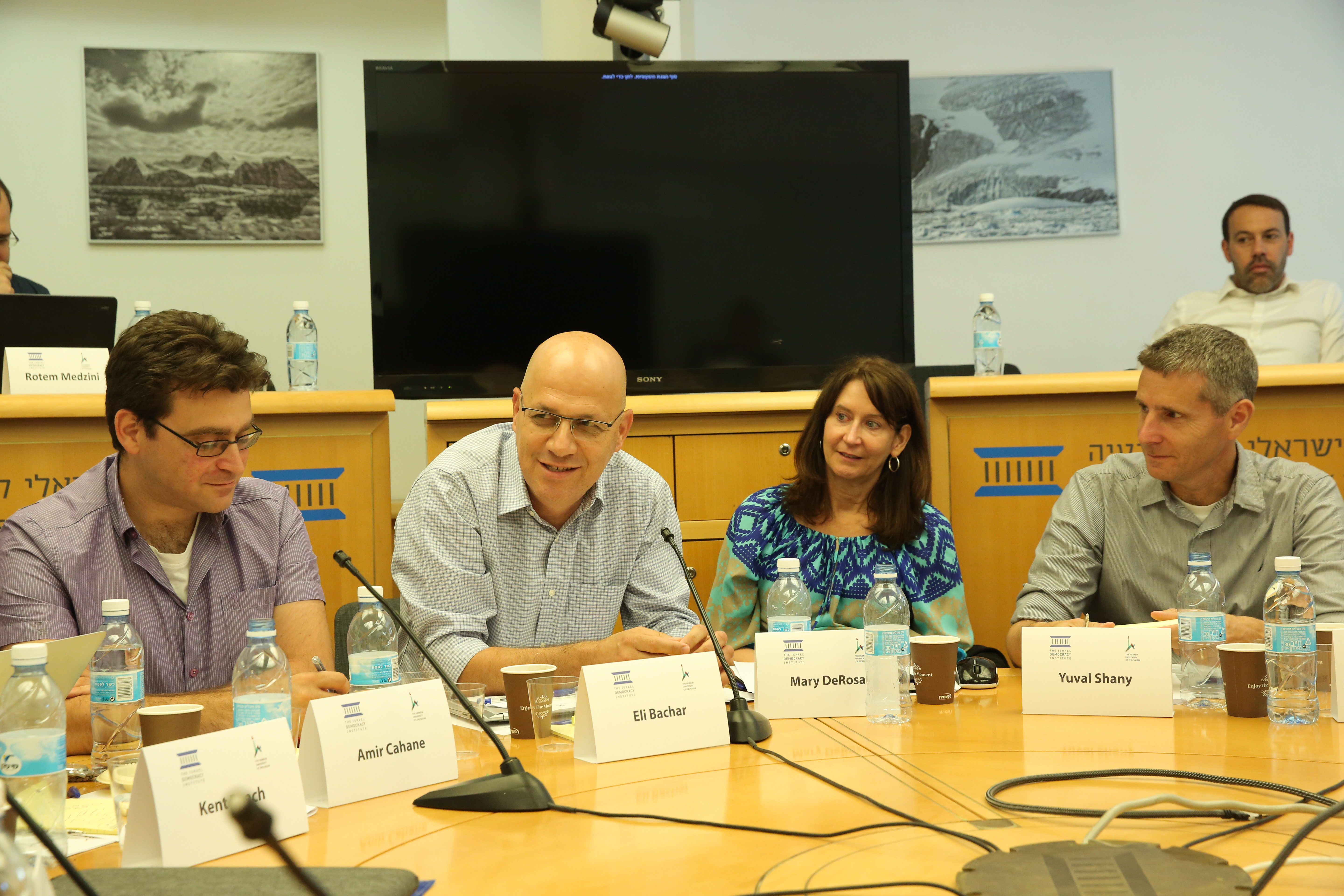Regulation of Communication Networks Surveillance and the Principle of Proportionality
The principle of proportionality is not always taken into consideration within the discourse relating to privacy and state sanctioned online surveillance. Different jurisdictions and legal systems use explicit or tacit proportionality considerations by deploying various procedural, institutional and technological safeguards in the context of communication networks surveillance.
A workshop, held at the Israel Democracy Institute, examined the development and application of measures designed in national and regional legal systems to ensure the proportional execution of communication networks surveillance by the relevant surveillance authorities, with a particular focus on the notion of proportionality employed, the different proportionality options considered in the course of policy making (and its role in facilitating right limitation by policy makers), difference in regulation of surveillance by police and other security agencies and the actual lessons learned from practice.
The first part of the day focused on comparative perspectives as to the use and application of the proportionality principle in the legislative frameworks governing online surveillance in Australia, Canada, Germany, Korea, the United Kingdom and the United States.
In the second half of the workshop, some of the speakers addressed issues relating to broader international perspectives, in particular to the privacy law of the UN HRC, and to the level of privacy protection conferred upon non-citizens.
The last part of the workshop concentrated on the domestic legal framework regulating network surveillance in Israel, offering judicial, institutional and internal security approaches.

Prof. Kent Roach, University of Toronto; Prof. Mary DeRosa, Georgetown University Law School; Prof. Russell Miller, Washington and Lee University School of Law; Dr. Nicola McGaritty, Terrorism Law Reform Project, Gilbert; Tobin Centre of Public Law; Dr. Daragh Murray, Human Rights Centre & School of Law, University of Essex; Prof. Kyung Sin Park, Korea University Law School; Adv. Asaf Lubin, J.S.D. Candidate, Yale Law School; Prof. Yuval Shany, Israel Democracy Institute; CyberLaw Program, Hebrew University of Jerusalem; Adv. Amir Cahane, Israel Democracy Institute; Adv. Zili Nae, Ministry of Justice; Adv. Eli Bachar, Israel Democracy Institute; Judge Dorit Beinisch, Former President of the Israeli Supreme Court; Adv. Amit Ashkenazi, Legal Advisor, National Cyber Directorate.
9:00-10:30 | Comparative Perspectives I
Prof. Kent Roach, University of Toronto Prof. Mary DeRosa, Georgetown University Law School Prof.
Russell Miller, Washington and Lee University School of Law
10:45 – 12:15 | Comparative Perspectives II
Dr. Nicola McGaritty, Terrorism Law Reform Project, Gilbert; Tobin Centre of Public Law (via Skype)
Dr. Daragh Murray, Human Rights Centre & School of Law, University of Essex
Prof. Kyung Sin Park, Korea University Law School, Board Member, Open Net Korea
13:15 – 14:30 | Local, Regional and International Perspectives
Adv. Asaf Lubin, J.S.D. Candidate, Yale Law School
Prof. Yuval Shany, Israel Democracy Institute; CyberLaw Program, Hebrew University of Jerusalem
Adv. Amir Cahane, Israel Democracy Institute
14:45 - 16:45 | Toward possible reform of domestic surveillance laws
Judge Dorit Beinisch, Former President of the Israeli Supreme Court
Adv. Zili Nae, Ministry of Justice
Adv. Eli Bachar, Israel Democracy Institute
Adv. Amit Ashkenazi, Legal Advisor, National Cyber Directorate
5 p.m. | Closing Remarks
Prof. Yuval Shany, Israel Democracy Institute; CyberLaw Program, Hebrew University of Jerusalem
